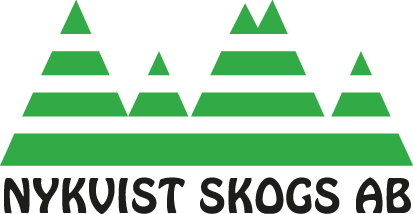Interim Report January-June 2012
CEO’s statement
Rottneros generated an operating profit of SEK 36 million during the second quarter, which we are pleased about given the prevailing macro-economic downturn and global uncertainty. The quarterly result corresponds to a return on capital employed of 14 per cent for the quarter. The result is the same as for the second quarter of last year, although the cost of pulp at that time was USD 1,000 per tonne compared with just over SEK 800 this year. Including the stronger dollar, the price of pulp in Swedish kronor was almost SEK 500 per tonne lower during the second quarter of the year compared with last year. Consequently we have largely achieved this result by improving productivity and reducing costs.
Vallvik Mill has beaten its production record, which demonstrates in its monthly rate that the factory can handle a rate corresponding to the level for which we are applying for a temporary environmental permit: 242,000 tonnes per year. A decision is expected during the third quarter and should apply for a period of three years. The investment programme implemented following the new share issue in late 2009 is now paying for itself. Higher and more stable production has reduced the consumption of chemicals and energy, increased green electricity certificate production, and having fewer employees obviously leads to a lower production cost per tonne. Yet we cannot live on this; it is revenues that count at the end of the day. Thankfully, most of Vallvik’s sales are outside the troubled printing paper segment, so the revenue side has fared pretty well despite macro-economic weaknesses.
The decline in the European consumption of printing paper means that the demand for suitable fine groundwood pulp continues to dwindle. As the last dedicated manufacturer, we have now been forced to issue notices of pending redundancy notices to our staff on the groundwood line at Rottneros Mill. Our continuous production of groundwood pulp is scheduled to cease in March 2013. This will not affect CTMP production. The intention is not to scrap or sell the groundwood line, but to modify it during the autumn so that it can also manufacture coarse groundwood pulp. If there are customers in the future who are profitable for us within either the board or printing paper sectors, production can thus be continued intermittently. Furthermore it is also conceivable that continuous production could also resume should there once again be a change in the competitive conditions – in plain terms price, availability and quality including composition reliability – especially relative to recycled fibres. We have been forced to initiate this drastic process owing to the Swedish model which, unlike the countries where many of our competitors operate, have no temporarily dismissal rules and because of Swedish employment protection legislation. The downsizing does not necessitate any impairment losses or reservations for redundancy expenses or other closure costs.
We envisage a high level of macroeconomic uncertainty for the remainder of the year with virtually unpredictable value interrelations between the dollar, the euro and the krona. This results in commodity markets being generally tricky to predict, and particularly the pulp market. When making an international comparison, European pulp prices are not high and the price gap between the various grades of pulp is also unusually low, which leads us to believe that demand for our long-fibre pulp will be fairly good for the remainder of the year. We do not envisage any price increases for raw materials (such as pulpwood and chemicals) over the year and nor for energy besides normal seasonal fluctuations during the late autumn.
Ole Terland
President and CEO
(For full report, see attached file)
Rottneros, a company that was originally established in the 1600s, is an independent and flexible supplier of customised paper pulp of high quality. Rottneros has been able to adapt in order to meet high customer expectations by continually developing its products and maintaining high levels of delivery reliability, technical support and service.
Rottneros has an annual production capacity of almost 400,000 tonnes of pulp at two mills in Sweden. Increasingly intensive product development in line with the requirements of customers will result in profitability that is higher and more stable throughout the business cycle.
Rottneros AB (publ)
Box 70 370, SE-107 24 Stockholm, Sweden
Visiting address: World Trade Center, Kungsbron 1, C6, Stockholm, Sweden
Telephone +46 (0)8-590 010 00, Fax +46 (0)8-590 010 01
[email protected] www.rottneros.com
